Abstract
Estimates of measles vaccination coverage in the Sudan vary on average by 23 percentage points, depending on whether or not information supplied by mothers who have lost their children's vaccination cards is included. To determine the accuracy of mother's reports, we collected data during four large coverage surveys in which illiterate mothers with vaccination cards were asked about their children's vaccination status and their answers were compared with the information given on the cards. Mothers' replies were very accurate. For example, for measles vaccination, the data supplied were both sensitive (87%) and specific (79%) compared with those on the vaccination cards. For both DPT and measles vaccination, accurate estimates of the true coverage rates could therefore be obtained by relying solely on mothers' reports. Within +/- 1 month, 78% of the women knew the age at which their children had received their first dose of poliovaccine. Ignoring mothers' reports of their children's vaccination status could therefore result in serious underestimates of the true vaccination coverage. A simple method of dealing with the problem posed by lost vaccination cards during coverage surveys is also suggested.
Full text
PDF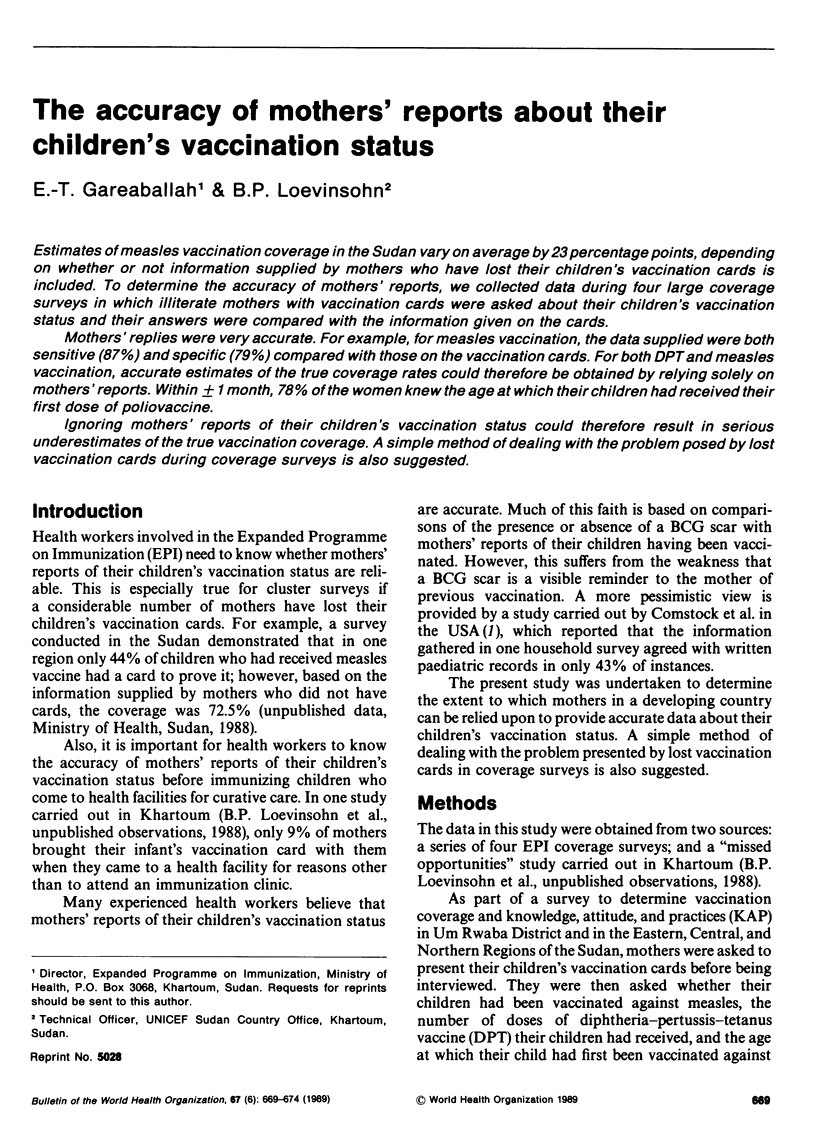
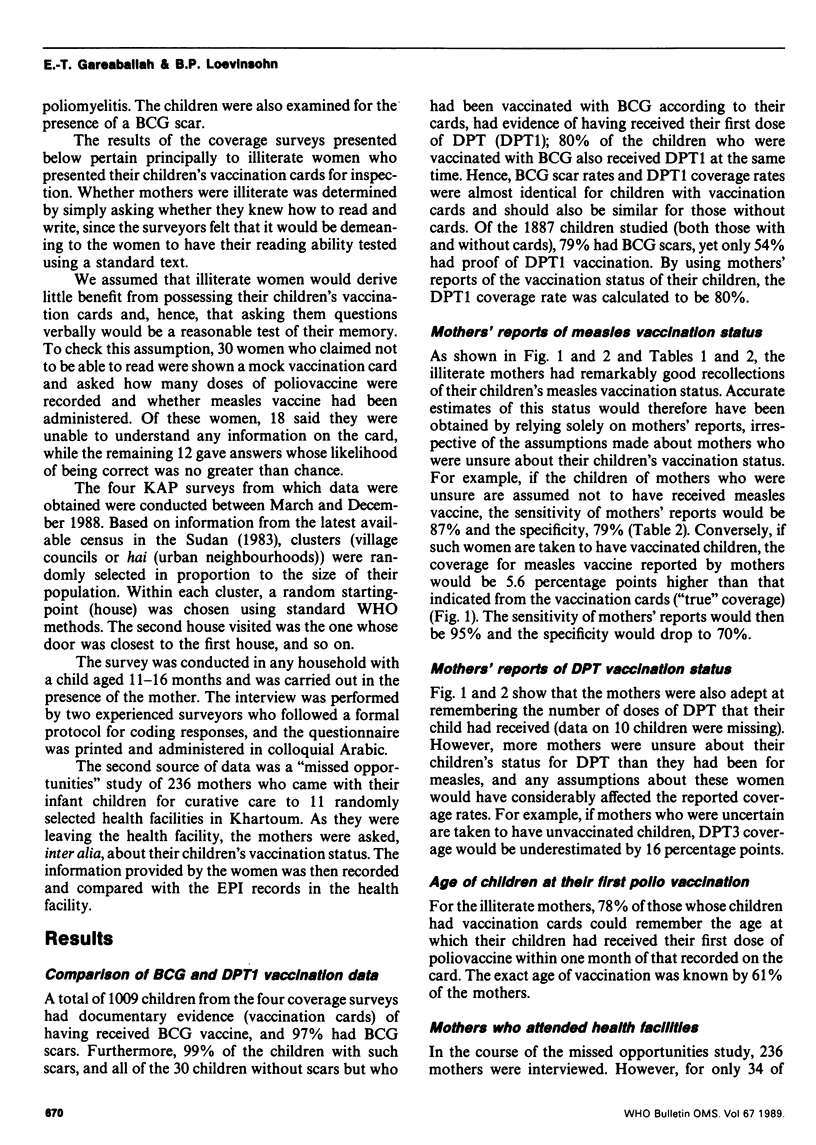
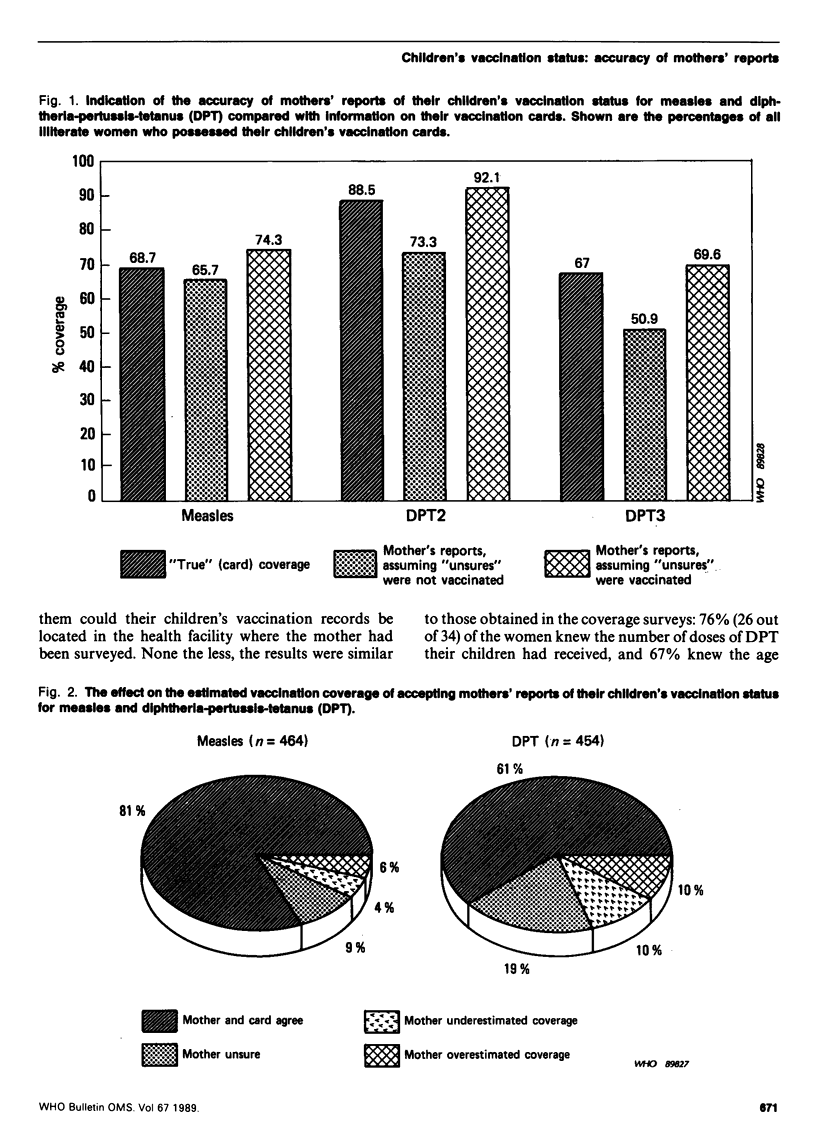
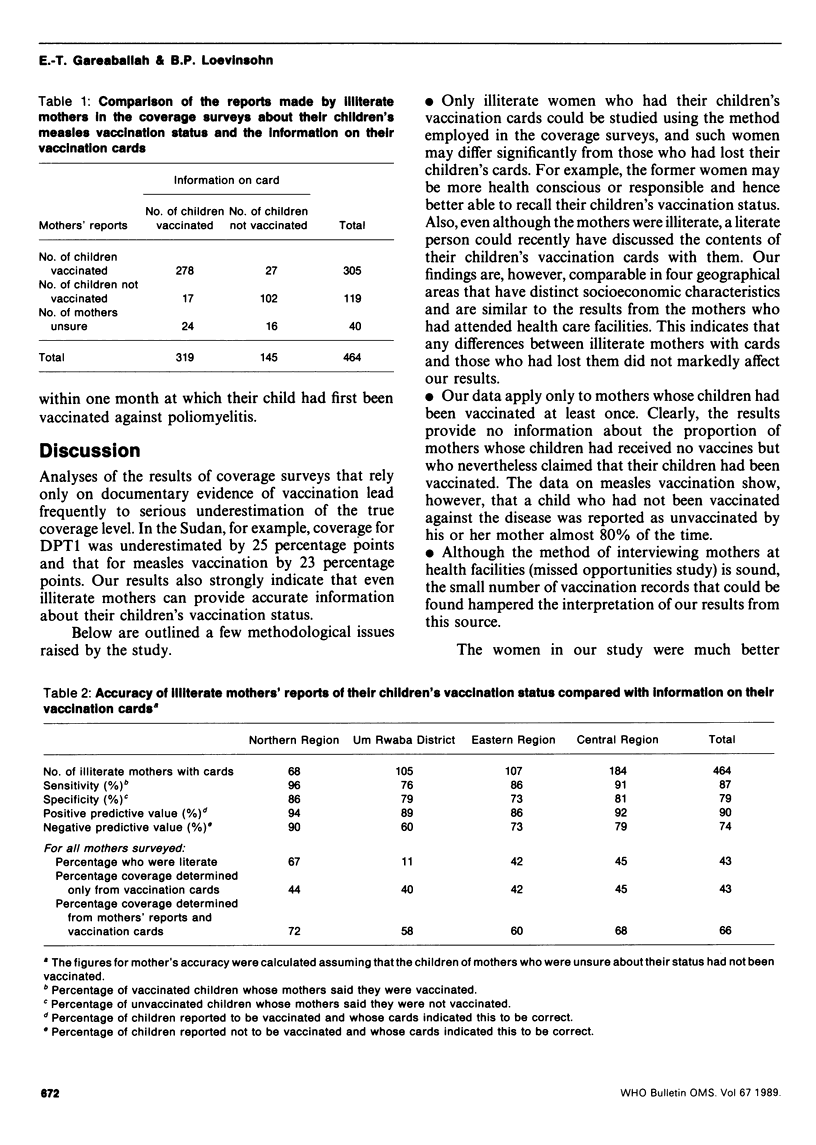
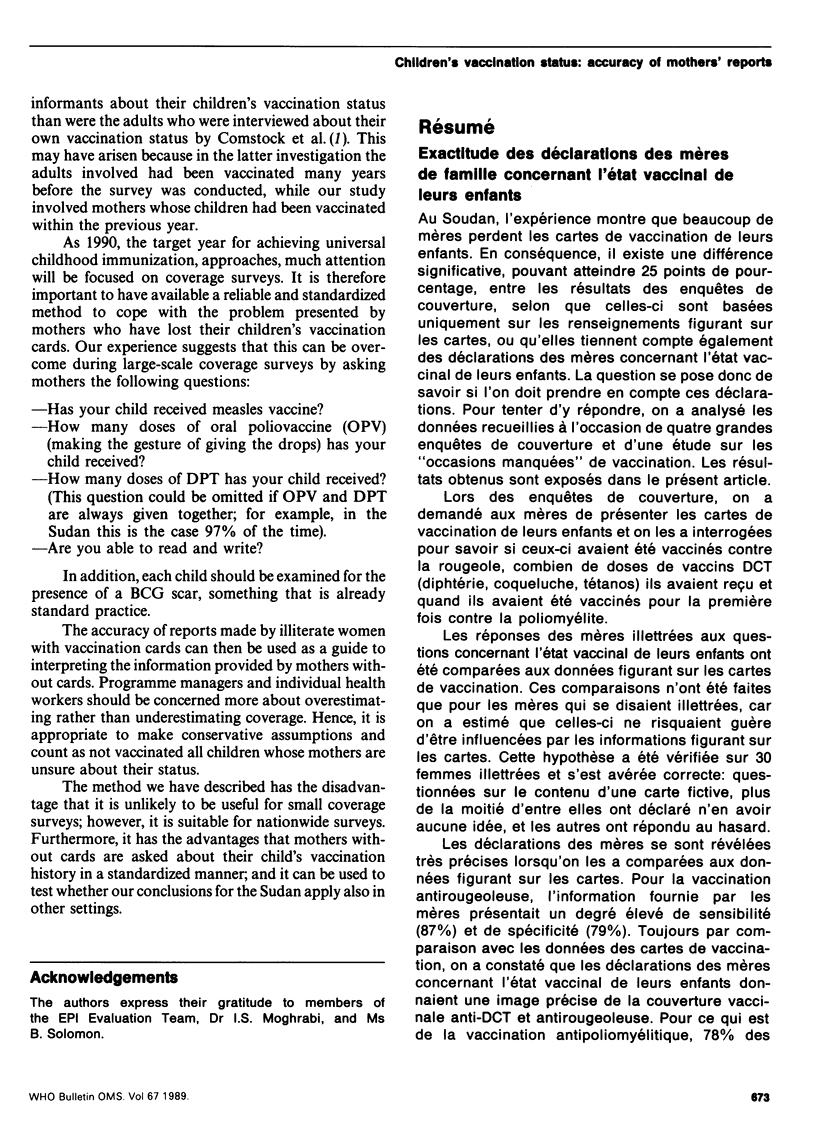
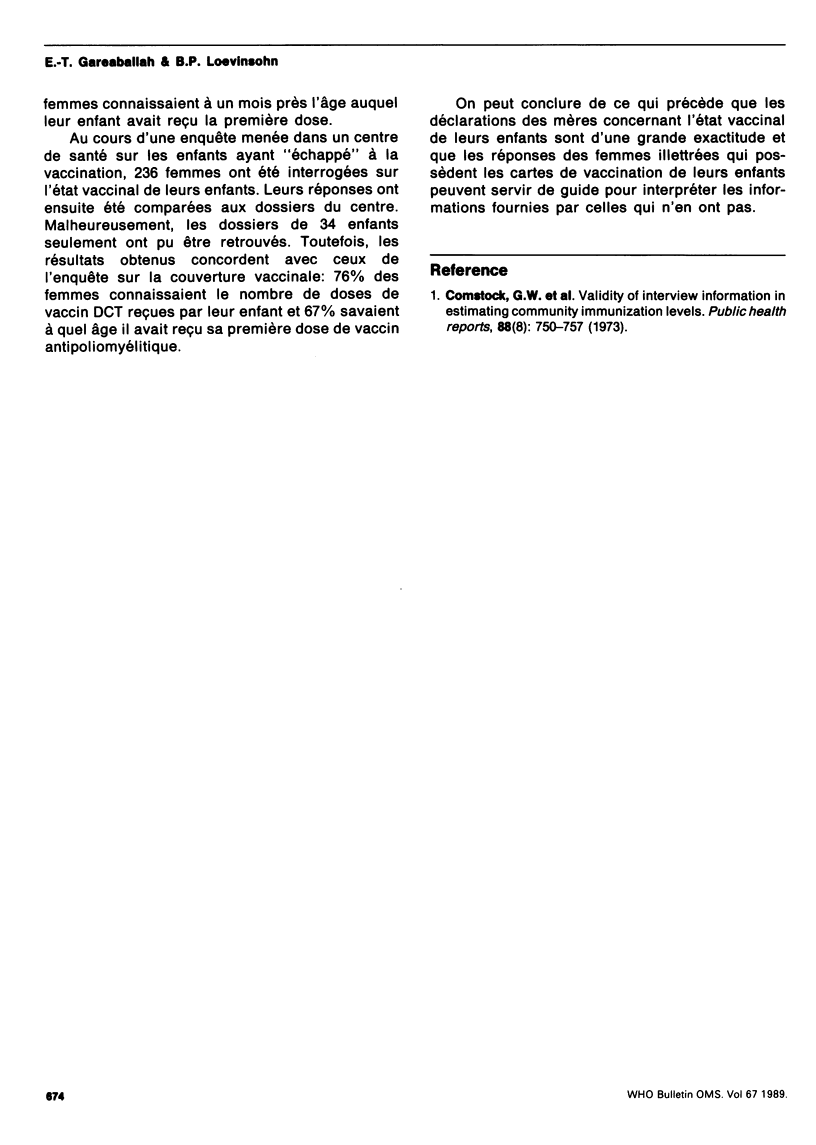
Selected References
These references are in PubMed. This may not be the complete list of references from this article.
- Comstock George W., Brownlow Wilfred J., Joseph J. Mehsen, Garber Howard J. Validity of interview information in estimating community immunization levels. Health Serv Rep. 1973 Oct;88(8):750–757. [PMC free article] [PubMed] [Google Scholar]


